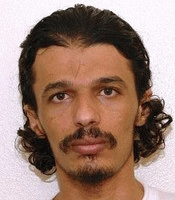This piece was reprinted by OpEd News with permission or license. It may not be reproduced in any form without permission or license from the source.
I suppose that The New York Times' recent article, Where Even Nightmares Are Classified: Psychiatric Care at Guantanamo, will be welcomed by some as a reminder of the horror that is Guantanamo. While I cannot expect that others will find significant the same episodes in the wide-ranging torture scandal as I do, this article by Sheri Fink (assisted by others, including James Risen) does a disservice to the public by misrepresenting many facts about what actually happened. The article hides and misrepresents more than it claims to reveal. It is, in fact, a classic example of a "limited hangout," something that The New York Times excels in producing.
The article gives us glowing photos of former Guantanamo mental health providers. It offers testimony from supposedly conflicted former doctors, psychologists, nurses and psych techs, without ever noting that retrospective testimony could be self-serving. Fink herself can't seem to make up her mind if these so-called conscientious medical professionals showed "willful blindness" to "abuse," or whether in fact "psychiatrists, psychologists and mental health teams... were often unaware of what happened." (I don't think anyone at Guantanamo was unaware of the torture going on, but they may have deliberately or unconsciously numbed themselves to it. No doubt recent reports of high levels of PTSD among guards assigned to Guantanamo is related to the exposure to widespread torture of detainees.)
Actual contemporaneous documentation of the attitudes of health care workers, or the subordination of medical decision making to military command authorities, was amply available to The New York Times, but they chose to ignore it. This omission amounts to a misrepresentation of the material, as the article promises in its very title to be an examination of psychiatric care at Guantanamo. Is the failure to provide such material because it would reflect very badly on the medical professionals there? The article suggests at times serious deficiencies in the behavior of medical personnel, only to pull its punches or offer up mea culpas.
The signal importance of mental health problems actually leading to suicide was mostly ignored by Fink and her collaborators. Not one concrete example of an actual suicide was given, though there exists copious public documentation (and though you'd think an article on psychiatric care would say more about suicides of detainees held in Guantanamo's psychiatric unit).
In a powerful example of such evidence, we have on public record the sworn statement of the Chief of Behavioral Health Services at the Guantanamo prison camp, given to the Naval Criminal Investigative Service (NCIS) in June 2009 as part of the investigation into the purported suicide of Mohammed Al Hanashi. Al Hanashi had come to the Chief the very day he was to die and complained about being tortured. The Chief told NCIS what happened from his perspective, which is damning enough. They had been talking about pending changes to rules to take place in the Behavioral Health Unit:

Muhammad Salih Al Hanashi
(Image by (From Wikimedia) Unknown author, Author: Unknown author) Details Source DMCA
In what NCIS regarded as Al Hanashi's suicide note, Al Hanashi described his response, and his descent into suicidal despair: "... when the highest ranking officer in the camp came and talked to me while I was walking he informed me that this camp [the Behavioral Health Unit] will have the same rules as the others, and when I asked the help of the [Chief] psychologist who was present, he said the rules will apply on everybody then he left without saying anything more. Even the officer who was close to him was surprised by his inappropriate behavior as someone who is supposed to be in a humanitarian position. At that time I knew that the only solution is death before they transgress on our religion the way they do in the other camps." In fact, Al Hanashi died only hours later, purportedly at his own hand. [Kindle Locations 145-148 in "Cover-up at Guantanamo"; also Al Hanashi documents, Part 2, pp. 2-3, URL: http://guantanamotruth.com/mohammed-salih-al-hanashi/]
None of this is even hinted at in Sheri Fink's article.
(Note: You can view every article as one long page if you sign up as an Advocate Member, or higher).





